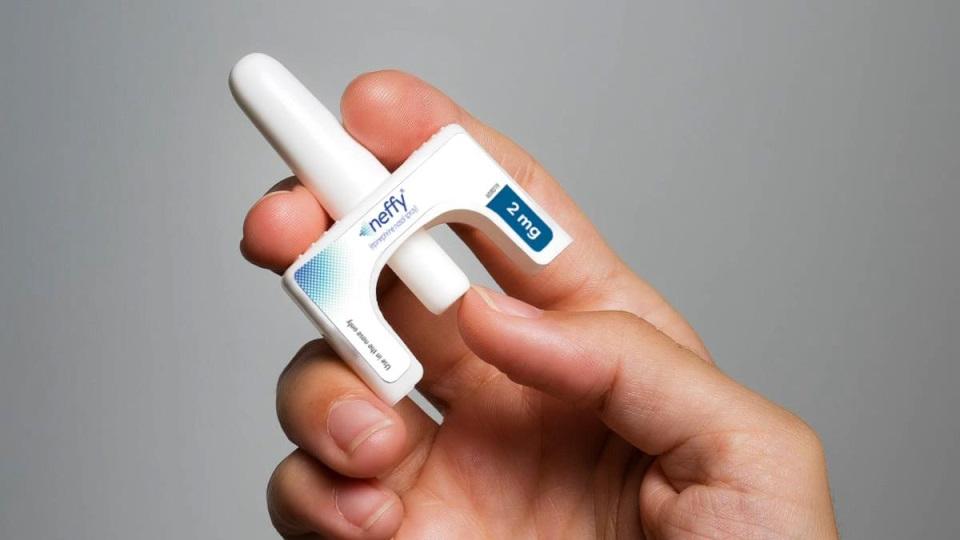FDA declines to approve needle-free epinephrine from ARS

Shares in ARS Pharmaceuticals were in freefall in pre-market trading this morning as it emerged that the FDA had declined to approve its application for its lead product, aiming to become the first needle-free epinephrine product to treat severe allergic reactions.
The nasal spray, dubbed neffy, has been filed for use in adults and children weighing 30 mg or more as an alternative to epinephrine injections such as Kaléo’s AUVI-Q and Viatris’ EpiPen – which dominates the market for emergency medications for anaphylaxis – or its generic equivalents.
In a statement, ARS Pharma said it was “very surprised” by the complete response letter (CRL) from the FDA as an advisory committee to the agency recommended approval of the drug in May without any additional trials by a vote of 16 to six.
The company also said it had reached an agreement with the agency in August on physician labelling and post-market requirements, including a repeat-dose study of neffy under allergen-induced allergic rhinitis conditions.
Now, it seems the FDA has asked to see the results of that repeat-dose study before it will approve the nasal spray, which could delay the programme by several months. ARS Pharma said it is now working towards refiling for approval in the first half of 2024, with the hope of getting the go-ahead before the end of that year.
Shares in the company lost 11% of their value after the news emerged late yesterday US time, and were down another 47% at the time of writing.
ARS Pharma co-founder and chief executive Richard Lowenthal said the company strongly believes in neffy and the benefits it can bring for patients, families and caregivers who can live on a daily basis with the threat of severe and life-threatening allergic reactions.
“If approved, neffy would represent the first-ever needle-free nasal spray epinephrine treatment for people with severe allergic reactions that has been shown to be more easily carried and administered, without anxiety or hesitation, which is critical to stopping disease progression,” he said.
“We are deeply disappointed that this action further delays the availability of neffy for the millions of people who are at risk of a potentially life-threatening severe allergic reaction.”
Lowenthal also said that the company’s cash reserves of $252.5 million at the end of the second quarter will allow it to complete the additional study and still have an estimated $195 million to hand when neffy launches, assuming that takes place on the expected timeline.
The FDA decision may also disappoint payers hoping for an alternative to EpiPen that could help bring down the cost of the treatment, which has seen steep increases in recent years that have drawn scrutiny from lawmakers in the US and resulted in a $465 million settlement deal with EpiPen manufacturer Mylan – subsequently acquired by Viatris – in 2016.
Earlier this year, the US Supreme Court declined to hear legal action against Viatris, which claimed that it was illegally monopolising the epinephrine auto-injector market through exclusive deals with formularies.













